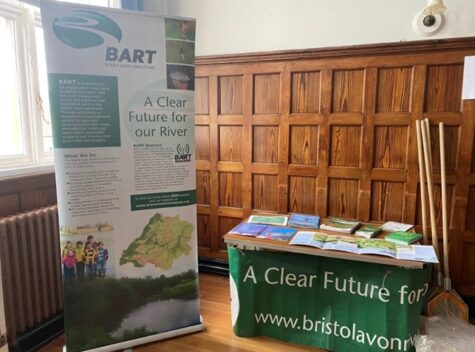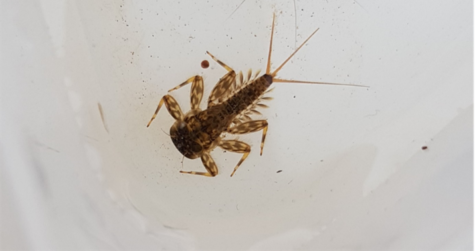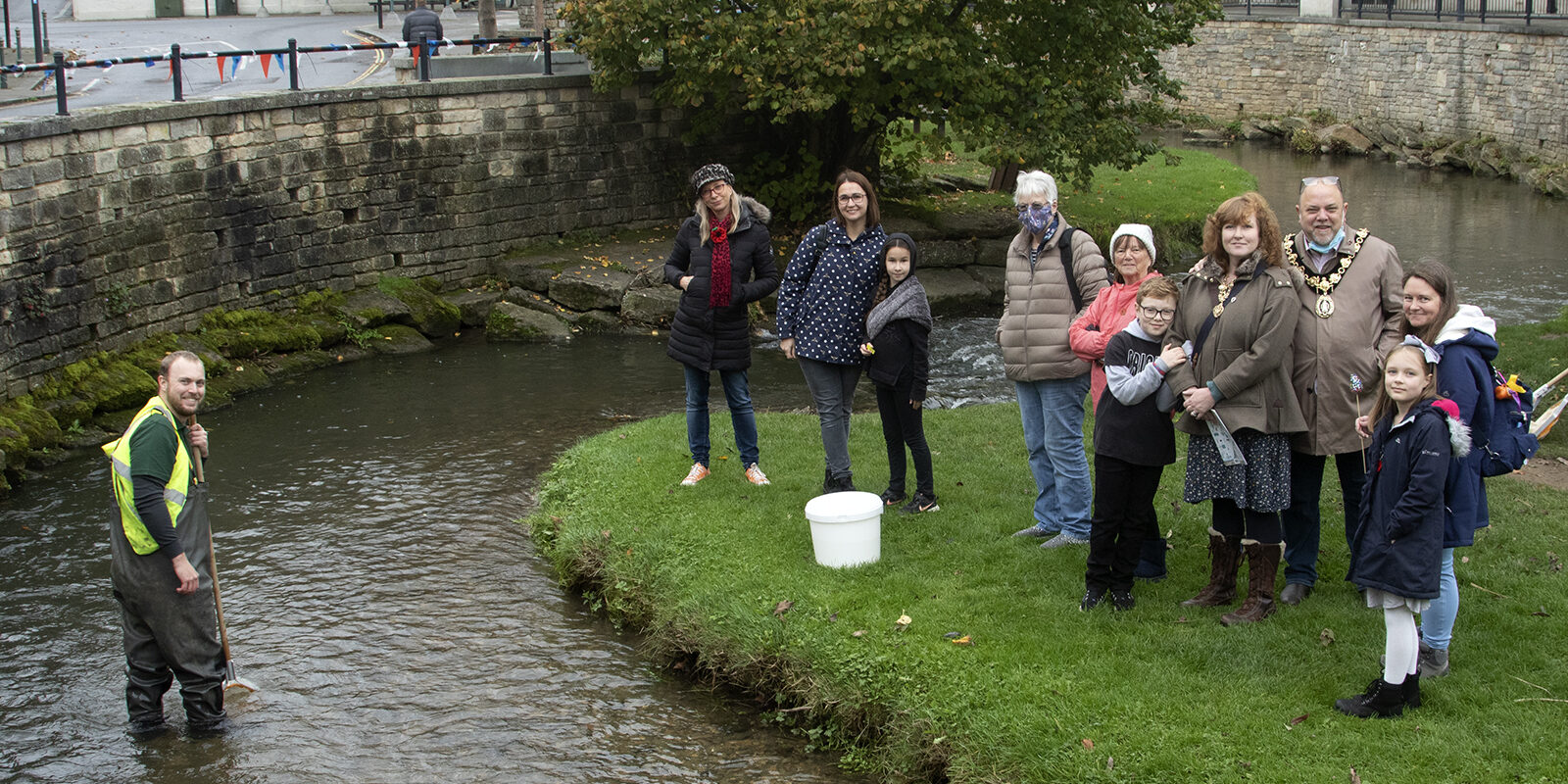BART has been busy in the Marden Valley over the past several months and as part of this programme of work, we’ve carried out a Sustainable Homeowner Water Management campaign in Calne, Wiltshire.
The project aims to engage local school children about the importance of their local rivers, including learning about what wildlife lives within them and the pressures that our wildlife faces. Due to the uncertainty around restrictions associated with the current pandemic, BART produced an innovative digital educational resource which has been designed to explore ways to look after wildlife including ways to save water and reduce surface runoff from our homes and schools which potentially transport pollutants to our watercourses.
BART was kindly granted funding from The Revere Trust, to raise awareness and provide the tools for homeowners to help look after their local rivers and streams and we hope that the lessons will inspire our next generation of river guardians and empower individuals and communities to make a difference themselves.
In addition, we were pleased to attend Calne Eco Fest, organised by Calne Area Board, Sustainable Calne, Friends of the Marden Valley and Calne Without Parish Council. Around 350 people attended the event and BART we able to engage with the local community about our current work in the Marden Catchment and provide details of our future projects. Through discussions with attendees, we learned about the issues along the river that have been of concern to the community. We were delvighted to see so many people take interest in our work and also asking about how they could get involved in volunteering with us. We created a number of leaflets for the event, which aim to introduce the local community to BART’s work in the Marden catchment as well as providing information about the simple things homeowners could do to reduce surface water runoff from their properties, through the introduction of Sustainable Urban Drainage solutions (SuDS) such as water butts, rain gardens, ponds, green roofs and permeable paving.

If designed correctly, SuDS can help manage water in our urban environments by helping to capture, store, or slowly release water back into the drainage network and river system. Measures are designed to reduce the volume and speed of water entering the drainage system during heavy rainfall events. Carefully designed SuDs within our gardens, driveways, courtyards, and outdoor spaces can play a significant role in both the management of rainwater and the enhancement of our urban spaces by:
- Helping to reduce peak flows of surface water entering drainage networks and local waterways,
- Help to reduce Combined Sewer Overflow (CSO) spills,
- Filtering urban runoff from roads and infrastructure to improve water quality entering our rivers and streams,
- Complimenting flood defence systems and natural flood management interventions in rural areas.
- Increasing habitat for wildlife within our urban spaces,
- Improving the aesthetics of ‘grey’ urban areas.
During the afternoon, BART partnered with Calne River Warriors to coordinate a river dipping event in the town center on the banks of the River Marden. A small group joined us to learn about river wildlife found in the river that is often hard to spot from the riverbanks. Both adults and children were shown how to identify the different invertebrates found in the River Marden and what they can tell us about river health.
This Sustainable Homeowner Water Management campaign is part of a wider project being carried out by BART and its partners throughout the Marden catchment. BART is engaging with landowners, businesses and homeowners throughout the catchment working to improve water quality, habitat and understanding of the issues facing the Marden and its wildlife. BART are delivering advisory visits throughout the project, working with landowners to develop and deliver opportunities to improve water quality and watercourse habitats, as well as deliver “in-river” works to enhance diverse flow conditions and reduce the impacts of land use in The Marden Catchment.
The funding provided by The Revere Trust also allowed BART to deliver an Anglers’ Riverfly Monitoring Initiative (ARMI) Riverfly Training Course in the Calne community. The Riverfly Monitoring Initiative, spearheaded and supported by the Riverfly Partnership, uses citizen science to get people out and about on our rivers, enjoying the natural environment and helping to monitor and protect it into the future.
BART trained members of the local Calne community and surrounding areas in the basic skills needed to become monthly volunteer riverfly monitors. This involves taking a 3 minute kick sample in the river at a site of the volunteer’s choice and identifying some of the groups of invertebrates in the sample. The kick sample is taken by the monitor standing in the river in wellies or waders (depending on depth!) and kicking the substrate for 3 minutes in different locations, allowing the invertebrates to flow into the net. The identification is then done on the side of the bank using a tray to pour your sample into and an identification guide. The monitor looks out for eight key indicator invertebrates and counts and records those that are present.

The monitor repeats this every month (ish!) at a site of their choosing (with our help of course) and puts the data on a national database. This way we keep eyes and ears on our rivers and can be the first to spot pollution events as well as collecting long term, regular data on the state of our rivers. If the riverfly score falls below a certain “trigger level” set by the Environment Agency then alarm bells ring and we can call out the EA to assess further.
Due to Covid-19 the training set up was a little different in 2021 with a new online element to the training which covered the theory aspects, with a quiz completed by the trainee in their own time, and then a session at the river with a group of volunteers to cover the practical side. The river session took place on the Marden in Castlefields Park on 24th June with keen and knowledgeable volunteers attending to have a go at the practical elements of the course.
Volunteers went away with the skills and knowledge needed to set up their own sites and continue to monitor and protect their local rivers into the future. BART supports volunteers through this process and throughout their monitoring and we now have four riverfly sites on the River Marden, one on the Abberd’s Brook and a number of sites in the process of being set up. The map below shows the network of sites that BART have in the Bristol Avon catchment.

Thank you to The Revere Trust for funding this project and to our partners Calne Area Board, Sustainable Calne, Calne River Warriors, Friends of the Marden Valley and Calne Without Parish Council.
For further information on this project please contact Rozy: rozy@bristolavonriverstrust.org
If you are interested in volunteering as a Riverfly Monitor, please contact Jess: jess@bristolavonriverstrust.org







